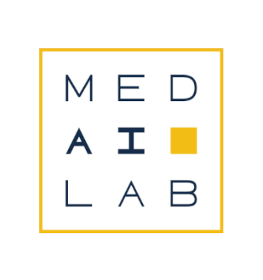
MedAI LAB
Jose M. Juarez (PI), Bernardo Canovas, Denisse Kim, Francisco Mora
Despite the professional fatigue and different years of experience, every day, hospital doctors still make hundreds of decisions about the best treatment for their patients. The inappropriate therapeutic decision may imply severe effects to the patient and the hospital population. In this project we focus on two specific scenarios: (1) Drug related problems (DRP): adverse drug effects, overdosage, etc.); (2) Antimicrobial resistance (ARP): lack of effectiveness of antibiotics. Maintaining the quality of care under these conditions and providing a resilient healthcare system is a great challenge
Deep learning models will be obtained from a proprietary database for Drug Related Problems (DRP). We will carry out a comparative experiment considering the trained models’ capacity to predict the potential DRPs outcome.
Explore the potential of pattern mining methods to extract underlying knowledge from a clinical dataset to fight the antimicrobial resistance problem (ARP). We shall test different types of subgroup discovery algorithms for descriptive and predictive analysis
Design mechanisms to measure the trust invested in AI services will be proposed from a social perspective. We will develop a questionnaire to assess AI trust in healthcare among patients and medical doctors as different stakeholders.
The result will be an actionable graphical representation of such multifactorial analysis, that we call the Trustworthy Artificial Intelligence Guideline in the Health and Wellness Context. The guideline proposed will not be a set of recommendations but a visual analytical help to provide, at a glance, healthcare professionals and other scientists, an evaluation of the current stage of AI technologies to solve specific problems in the healthcare field.
Multidisciplinary team of researchers from: Centre for Data Intensive Sciences and Applications at Linnaeus University, Medical Artificial Intelligence Lab (coordinator, Jose M. Juarez) at the University of Murcia, DELPHI at the Nantes Université and Institute of Behavioural Sciences at the Semmelweis University.
Months (9)
Publications
Visits
These are our recent achievements from the scientific and social point of view.
Bernardo Canovas, Edmond Girasek, Pierre-Antoine Gourraud, Tora Hammar, Jose M. Juarez, Denisse Kim, Alisa Lincke, Welf Löwe, Joëlle Martin-Gauthier, Francisco Mora, Diana Unander, Sergio Aleman-Belando. AI-DRIVEN TOOLS IN HEALTHCARE: A VISUAL GUIDELINE FOR TRUSTWORTHY TREATMENT DECISION SUPPORT SYSTEMS. EuniWell Showcase. Murcia, Spain. 2023. (poster)
WP1: Supervised Deep Learning for Drug Related Problems. Alisa Lincke (LNU), Tora Hammar ( LNU), Olof Björneld (LNU), Francisco Jose Mora Caselles (UMU), (slides)
Francisco Jose Mora Caselles, Alisa Lincke, Tora Hammar, Olof Björneld. Using Deep Learning, Data Mining, and Janusmed Riskprofile for Discovering Drug Related Problems (abstract)
WP2: SD for Machine Learning Explainability: Progress Report. Francisco Jose Mora Caselles (UMU), Jose M. Juarez (UMU), Bernardo Canovas (UMU) (slides)
WP3: Trust Measurement and Pilot. Edmond Girasek (SEMM) (slides)